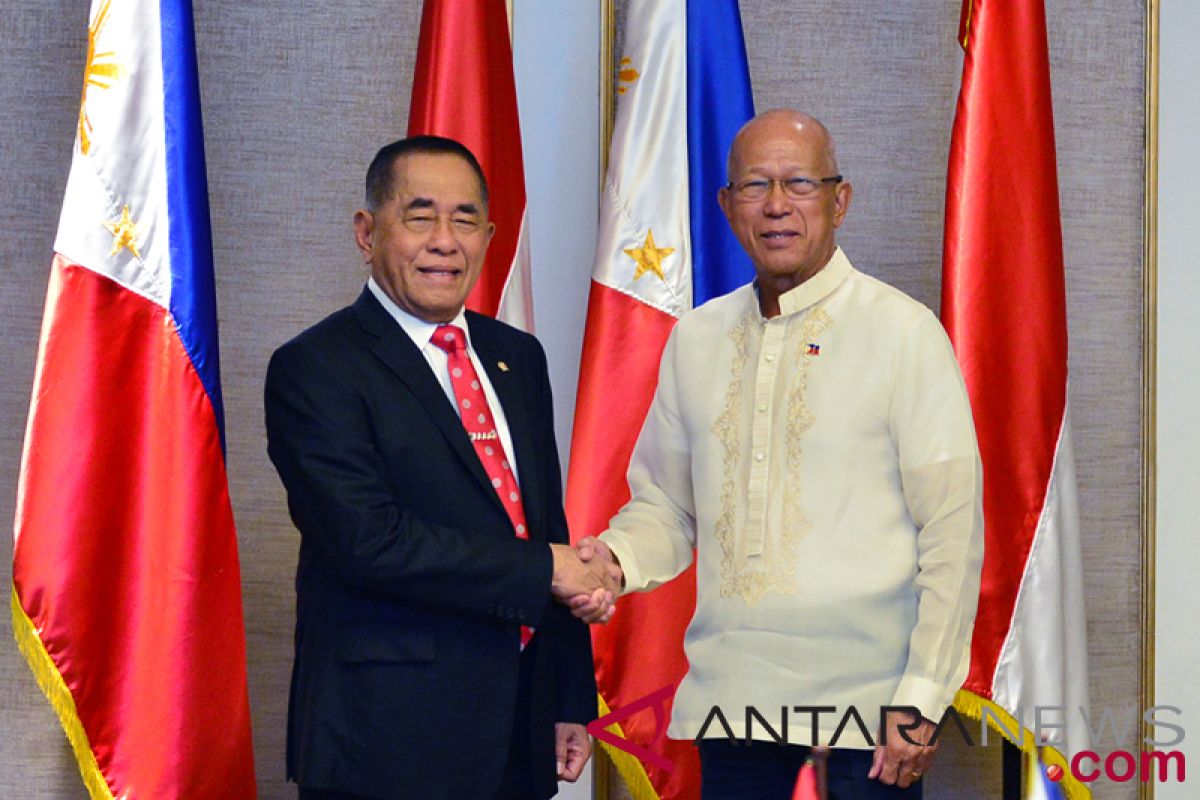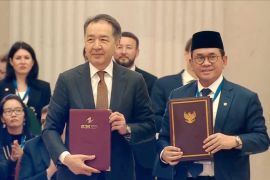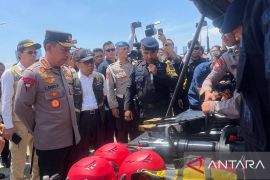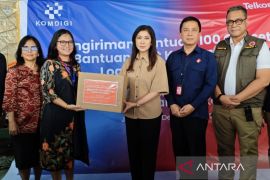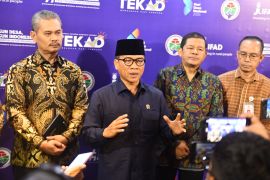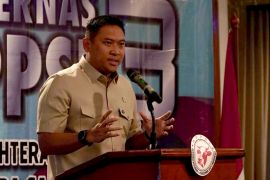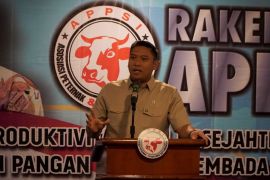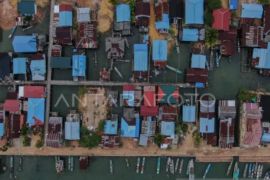"We have successfully carried out cooperation in eradicating terrorism by sea and air, and in the future we want similar cooperation on land," Indonesian Defense Minister Ryamizard Ryacudu said.Jakarta (ANTARA News) - Although the situation in the border region of Indonesia and the Philippines is relatively safe, the threat of terrorism should continue to be monitored by intensifying border security.
Hence, the two countries have reaffirmed bilateral cooperation and their commitment to work hand-in-hand in maintaining the security at their common borders to prevent transnational crime and terrorism.
Indonesian Defense Minister Ryamizard Ryacudu has said that the dislocation of the ISIS group and Abu Sayyaf Group (ASG), which was part of the Moro National Liberation Front (MNLF), was heavily involved in extorting money from foreigners through its Kidnap-for-Ransom (KFR) activities.
The Indonesian Ministry of Defense recorded that the concentration of most personnel in Zamboanga, Marawi, Zulu and Barangay is not ideological, compared to the more militant and fundamentalist MNLF in the Lanao del Sur complex and Basilan regions.
Their strength is currently around 1,267 militants, 40 of whom are Indonesian citizens, with the largest 200-300 militants in Basilan being led by Uruji Indama, while the Abu Sayyaf in Jolo is led by Radulon Sahiran, who has mixed weapons with concentrations in Zamboanga, Basilan, Jolo, Barangay and Lanau der Sul.
Hence, Indonesia and the Philippines have agreed to expand defense cooperation, including seeking the eradication of terrorism by involving ground, sea, and air forces.
"We have successfully carried out cooperation in eradicating terrorism by sea and air, and in the future we want similar cooperation on land," Indonesian Defense Minister Ryamizard Ryacudu said in Manila, the Philippines, on Friday.
At a meeting with his Philippine counterpart, Delfin N Lorenzana, Ryacudu noted that the defense cooperation between the two countries, including the eradication of terrorists, had gone well.
"We want this cooperation to be more evident in its implementation in the field, as the problem of terrorism is not only a matter of (concern for) Indonesia and the Philippines, but also for all countries in the region," he noted.
For this reason, the two countries need to be more concrete in taking this partnership forward in a sustainable manner, as terrorism is not a problem that is going to last only a year or two, the former Indonesian Army chief of staff noted.
In the meantime, Philippine Defense Minister Delfin N. Lorenzana stated that terrorism was a crime that transcended the country`s borders.
"Hence, we must establish cooperation to overcome the problem. Indonesia, the Philippines, and other countries in the region face diverse security challenges and threats, including terrorism," Lorenzana noted.
According to Lorenzana, the implementation of the defense and security cooperation between the Republic of Indonesia and the Philippines was a form of commitment to realize security and stability for the two countries and the region.
He emphasized that defense cooperation between the two countries must continue to be intensified through various platforms, such as dialogue and information exchanges.
The government of Indonesia has made every effort to deal with terrorism through both soft and hard approaches.
President Jokowi has said acts of terrorism pose a threat that law enforcement agencies must deal with properly.
In addition, cooperation between Indonesia and other countries in fighting radicalism and terrorism should continue to be improved in order to prevent its spreading influence.
Radicalism developing in Indonesia is believed to be a transnational ideology and a product imported from specific countries.
Therefore, Indonesia and the Philippines have agreed to increase their joint border security efforts, especially along their marine boundaries, through coordinated patrols.
Such coordinated patrols by the two countries` navies have become part of the military cooperation that has worked well.
So far, military cooperation between the two countries has been successful in education, as well as training and operations, especially coordinated patrols along the two countries` sea borders.
For Indonesia, the country remains committed to combating terrorism, through stopping the financing and money laundering in its jurisdictions, and through regional and international cooperation.
Money laundering is the process that criminals use to "clean" the money they make from carrying out crimes, such as fraud, dealing in illegal drugs, and tax evasion.
People who finance terrorism use similar methods to channel funds to money launderers for violent causes, and to disguise those who provide and receive the money.
Hence, the International Monetary Fund, in recent years, has been assuming a greater role in anti-money laundering and combating the financing of terrorism.
In its commitment to eradicate money laundering and financing terrorism, Indonesia is involved in the Association of the Asia Pacific Group on Money Laundering, which has 41 member countries.
This organization seeks to ensure that each member country, including Indonesia, is actively pursuing standards of action established in anti-money laundering policies, financing terrorism, and widespread funding of weapons of mass destruction.
Indonesia has officially become an observer at the FATF, an inter-state cooperation forum aimed at establishing the global standard of anti-money laundering regimes, and the prevention of financing terrorism.
Edited by Andi Abdussalam
Reporter: Otniel Tamindael
Editor: Heru Purwanto
Copyright © ANTARA 2018
